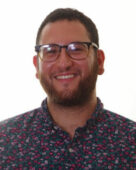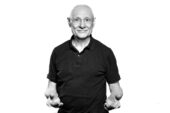
Personality Disorders therapists in Bakersfield, California CA

ARC Counseling and Wellness
Psychologist, Psy.D.
Working with a qualified professional who is more than just knowledgeable but genuinely cares and will assist you in a holistic and person centered way towards the goal of being your best and healthiest self.
Mary Knoblock
Hypnotherapist, Licensed RTT Practitioner, Clinical Hypnotist, Duke Certified Health Coach, Spiritual Counselor
We use a lot of different methods like RTT, Hypnosis, Reiki, Spiritual Counseling, Health Coaching etc. to help work through your personality disorder and find peace, clarity, harmony and your true identity.
Hannah Schaler, LMFT
Marriage and Family Therapist, CA LMFT#128698
I have extensive experience diagnosing and treating personality disorders of all types, with a focus on Borderline Personality Disorder. I enjoy working with this diagnosis because it touches on all aspects of life and effective treatment will lead to global relief. When responding to personality disturbance or disorder, I focus on clear communication and accountability, honest exploration of feelings, and building trust in the therapist-client relationship.
Sam Naimi
Licensed Clinical Social Worker, LCSW, Psychoanalyst
Do you find that your relationships tend to be emotionally charged? Personality disorders, often linked to relational and attachment difficulties, can make connections rather challenging. Psychoanalysis is a powerful tool to explore the unconscious roots of these patterns, often stemming from early relational experiences. I use contemporary neurobiology and attachment research, in tandem with psychoanalytic treatment, to help patients understand the deeper influences of their relationship woes. Together we can help you develop healthier ways of relating to others and build a more fulfilling life with intimate relationships.
Jean-Marie Bottequin
Life Coach, WAPP
The salutogenic concept of Positive Psychotherapy in the age of globalisation, taking into account stories, wisdom and humour.
Proverbs, as well as mythological motifs, bring up the values and norms of a culture, they refer to certain patterns of thought that are characteristic of culture and capture them in tangible images. Their substructure can be interpreted psychoanalytically.
In Positive Psychotherapy, founded by Prof. Dr Nossrat Peseschkian, a selected proverb is the starting point for exploring the client's particular ways of thinking. Positive Psychotherapy is based on three basic principles:
1st: The principle of hope: Positive Psychotherapy is based on a positive image of man. Each individual can transform his or her possibilities into abilities.
2: The principle of balance: health is a balancing act of various factors: When our body is tired and our senses are overexcited, exhaustion depression often occurs. The feeling of professional overload often leads to depressive pseudo-dementia, disturbances in the contact area cause social isolation, a lack of future planning produces fear of the future.
3rd: The principle of counselling: The counselling of the patient is divided into 5 stages:
a.) The therapist observes the behaviour and thinking of the person seeking advice for half an hour,
b.) the person seeking advice summarizes the events that have shaped his life in recent years,
c.) the therapist discusses possible processing strategies with the person seeking advice,
d.) the person seeking advice defines his goals for the next months,
e.) the person seeking advice defines his or her further aims.
While in the Orient the focus of life is more on the future and contacts, in the West we attach more importance to the physical side and our professional performance. Only if Orient and Occident learn from each other is it possible to keep human life and health in balance in the long run.





